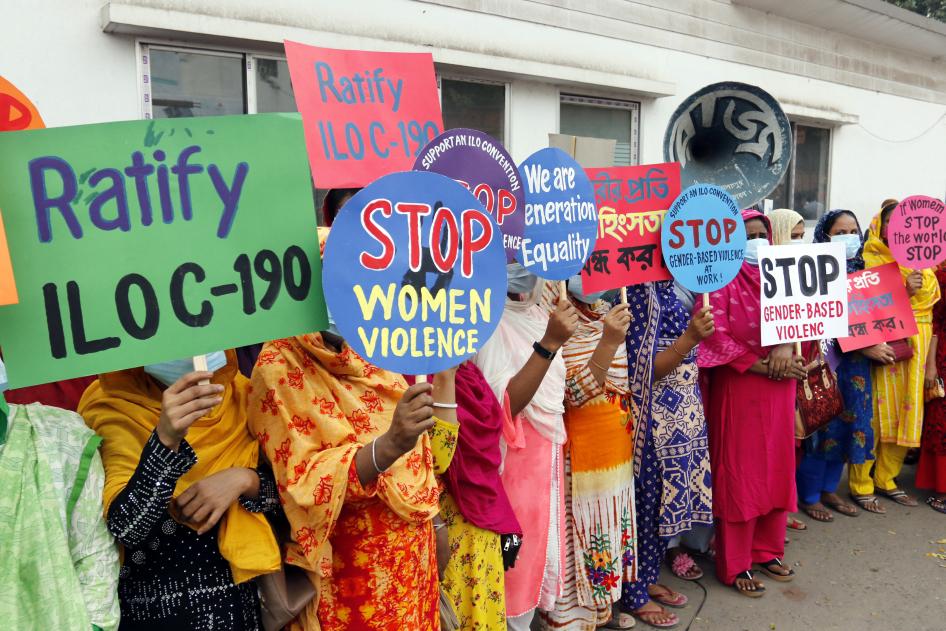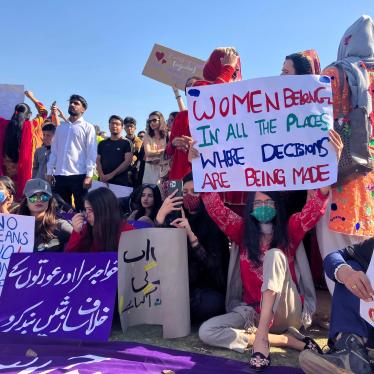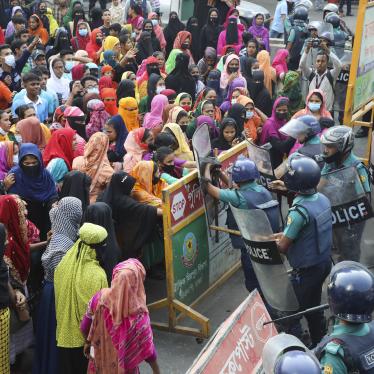Thanks to the efforts of feminists, trade unionists, and human rights activists, violence against women, once a normalized practice, is now widely acknowledged as a human rights violation – including in the world of work.
From the struggle of domestic workers campaigning for legal protections in Indonesia to women athletes fighting against sexual abuse in sports, activists and trade unionists have pushed their governments for change. This collective effort gave rise to the International Labour Organization (ILO) Convention on Violence and Harassment at Work (C190), a landmark treaty that lays out comprehensive standards for preventing and responding to violence and harassment at work. As of November 14, thirty-six countries have ratified the convention.
During this year’s 16 Days of Activism Against Gender Based Violence, a global campaign spanning November 25 to December 10, Human Rights Watch will highlight the stories of activists pushing their governments to end violence and harassment, including by ratifying C190.
Dur e Shawar, vice president of Pakistan Worker’s Federation, is one of the activists leading a C190 ratification campaign in Pakistan. Dur e has been pushing for the country to adopt the Convention’s standards as a powerful tool to eliminate gender-based violence for women workers, including those in the informal economy.
Human Rights Watch has long documented the impact of violence and harassment at work, including in the informal sector where workers face a heightened risk of harassment. According to the ILO, there are nearly two billion workers in informal employment, representing 6 in 10 workers globally. In low-income countries, informal workers make up 89 percent of total employment, where women workers are overrepresented in the least secure and lowest-paying occupations.
Despite this, many countries do not have adequate laws and policies to prevent and respond to violence and harassment against these workers. C190 requires governments to protect groups who are in heightened situations of vulnerability, such as informal workers.
Governments should ratify the treaty and incorporate its standards into law and practice, ensuring a safer and fairer world of work for everyone.
“This isn't just a matter of opinion,” Dur e said. “It's a fundamental aspect of creating a safe and equitable work environment that benefits everyone involved.”
As activists work to combat violence in the world of work, governments should listen to their voices, #RatifyC190, and implement effective reforms.











